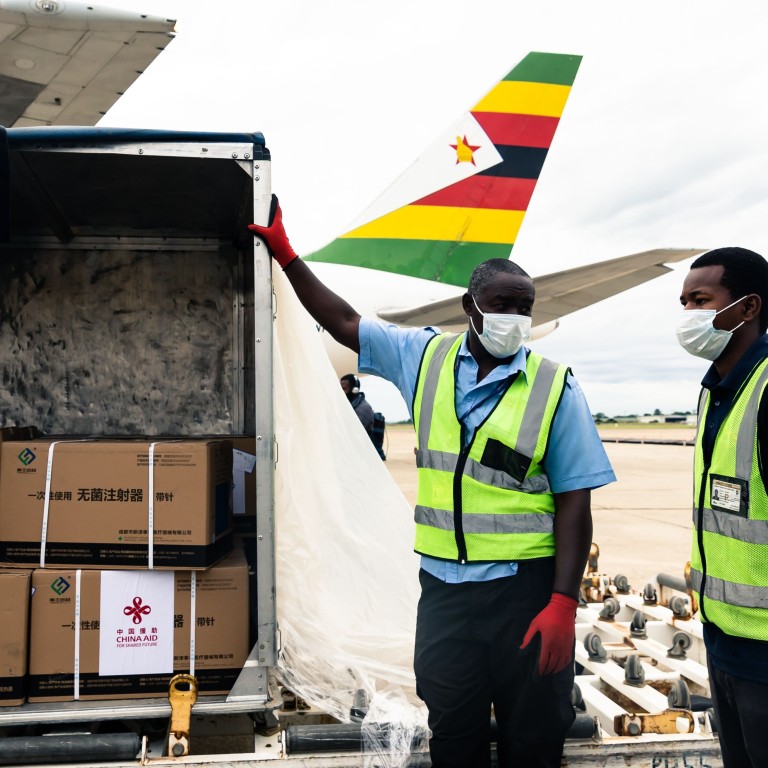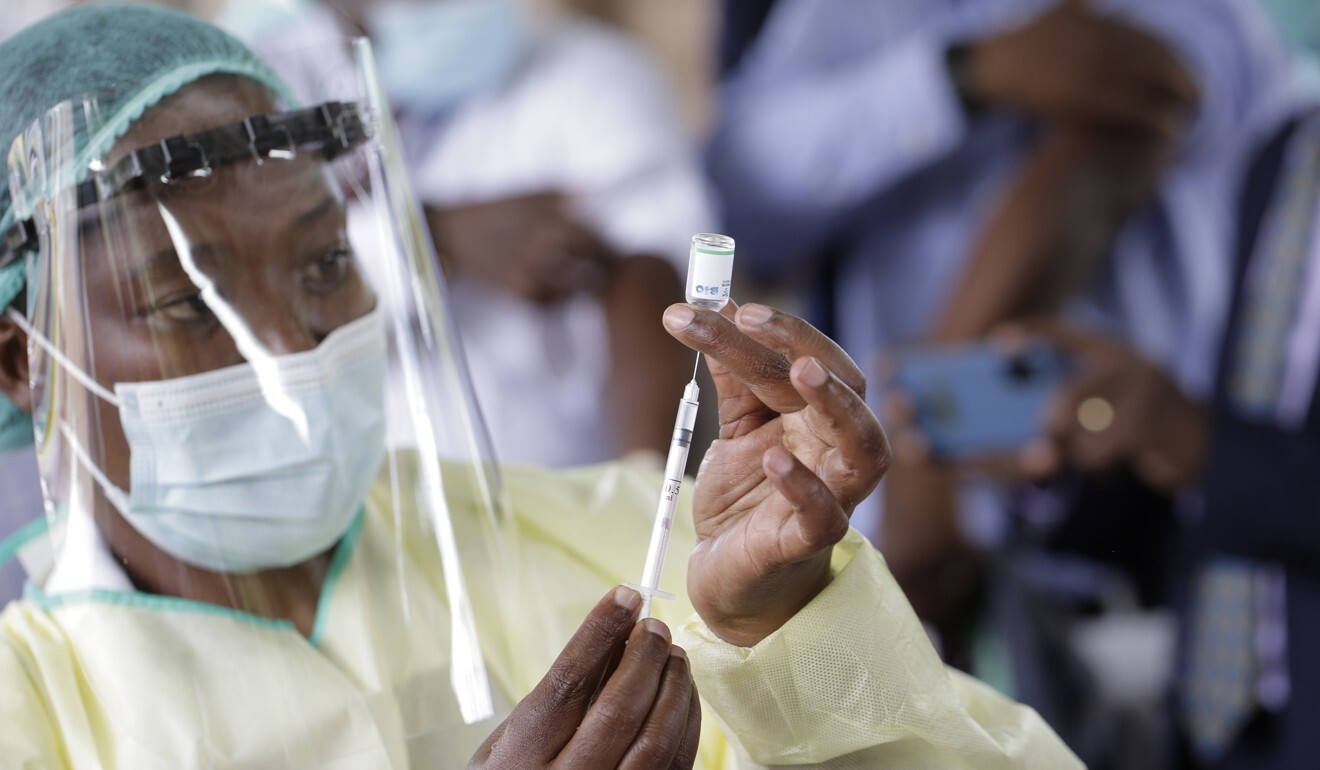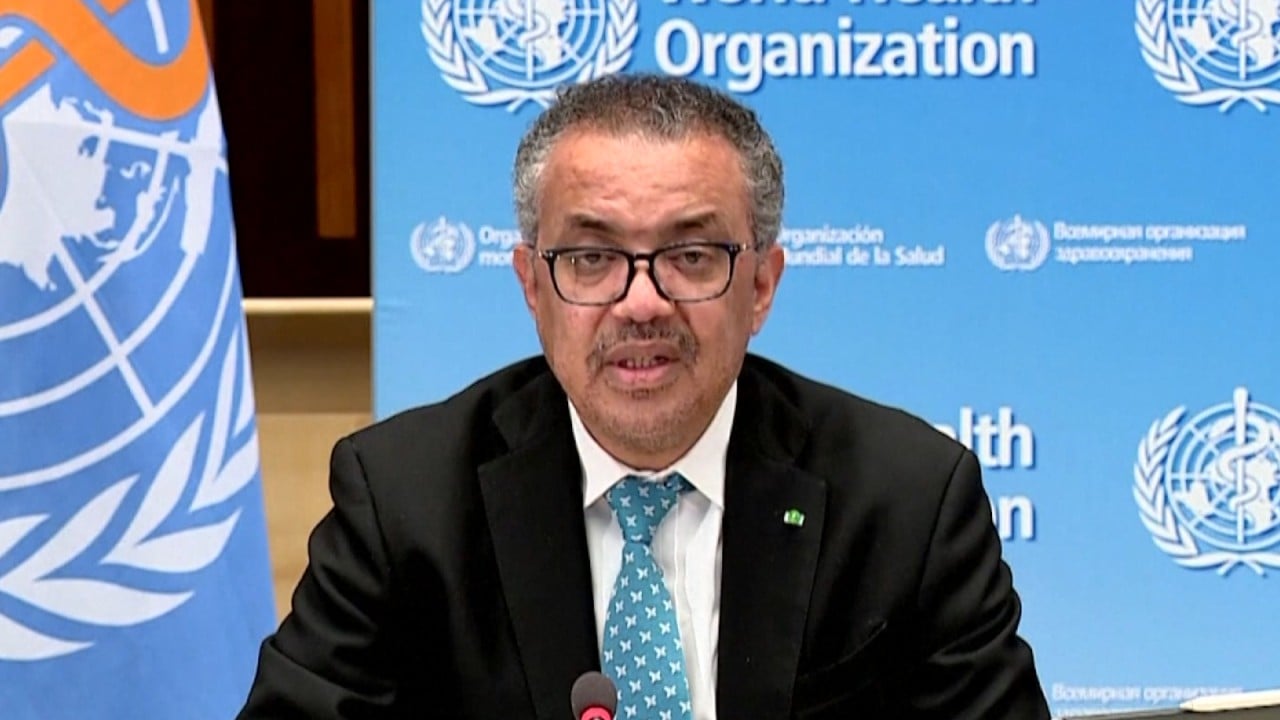
Coronavirus: China seeks to boost influence by filling ‘vaccine vacuum’ in poor nations
- As countries in Africa and elsewhere struggle to secure Covid-19 shots, China has stepped in
- Analyst says Beijing moved swiftly on vaccine diplomacy and others are only now catching up
It had sold a total of 651 million vaccine doses – far more than its donations of 17.4 million – as of Monday, according to Beijing-based Bridge Consulting.
Latin America and the Asia-Pacific were by far the biggest buyers, receiving 309 million and 248.46 million shots, respectively, while Europe accounted for 61.38 million.
Africa bought the least, at 33 million, but it received the second highest number of donated vaccines from China – it got 5.45 million of the 17.45 million donated. China has pledged to donate vaccines to 35 African countries and the African Union Commission.
It has donated the most – 10.5 million – to the Asia-Pacific region.

“There has been a dark cloud hanging over the Sinopharm brand with grave doubts about its efficacy,” Gostin said.

06:18
SCMP Explains: What’s in a Covid-19 vaccine?
A growing list of countries have meanwhile started manufacturing Chinese vaccines, including Pakistan, the United Arab Emirates, Indonesia, Malaysia, Bangladesh, Argentina, Brazil and Mexico.
Egypt – which like many African countries has been unable to secure enough vaccines – is the latest to join that list, announcing on Sunday that it would begin making the Sinovac shot in June, with initial annual capacity for 40 million doses. They will be used at home but also sent to other African countries that are struggling to secure vaccines.
WHO nod is a major credibility boost for Beijing and Chinese pharmaceuticals
Like China, Russia is also engaging in vaccine diplomacy through donations of its Sputnik V shot. Analysts say this is helping the two nations to strengthen relations with many emerging countries as Western influence wanes.
The Economist Intelligence Unit said the European Union, the United States and Britain had been mostly absent on vaccine diplomacy.
“This reflects intense political pressure in these countries to vaccinate their population first. It also reflects the recent controversies over the UK-developed AstraZeneca vaccine, which was originally intended – and priced – as a crucial vaccine for emerging markets,” it said. “Widespread hesitancy around this vaccine has left a gap for Russia and China to exploit.”

02:07
WHO chief slams ‘grotesque’ vaccine gap, asks producers to license technology to others
But David Shinn, a former US diplomat and a professor at George Washington University’s Elliott School of International Affairs, said America was “by far the largest donor to the WHO’s Covax programme, for which it is getting little credit”.
“It will soon have enough vaccine so that it can significantly increase donations to other countries,” he said.
“The US is playing catch-up in its vaccine diplomacy and influence around the world,” he said.
“We’re in open competition with China on several fronts but not directly competing on vaccine diplomacy,” Gostin said. “Our competition on vaccines is with our high expectations of US global health leadership.”
India envoy asks China to help stop price surging of Covid-19 supplies
Stephen Chan, a professor of politics and international relations at the School of Oriental and African Studies in London, said China had moved swiftly on vaccine diplomacy and other countries were only now catching up.
“Recipient countries, even if they have some doubts about Sinopharm, were alarmed with the bad publicity surrounding [cases of blood] clots that arose from using AstraZeneca,” Chan said.
But he said that in Africa, “it’s a ‘get whatever vaccine you can’ impulse – not a political affiliation impulse”.

